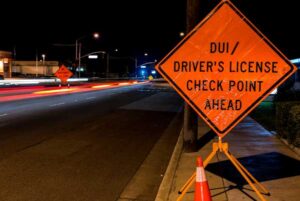Blog
The Financial Benefits of Hiring a Traffic Ticket Lawyer
Getting a traffic ticket can be frustrating, especially when you’re trying to manage a budget. At Carl L. Britt Jr. Attorney at Law in Fayetteville, NC, we know how tempting it can be to just pay the fine and move on. But before you reach for your wallet, consider this: hiring a traffic ticket lawyer might actually save you money in the long run. Let’s break down the real financial impact and explain how having an experienced traffic ticket attorney on your side can make a difference.
The Hidden Costs of Simply Paying the Ticket
At first glance, a traffic ticket might seem like a minor inconvenience. You pay a fine, maybe take a driving course, and it’s done—right? Not quite. Paying the ticket is the same as admitting guilt, and that can come with long-term financial consequences you may not have considered.
What’s Really at Stake?
When you pay a traffic ticket, it can lead to much more than just a financial hit—it can have lasting consequences that affect multiple areas of your life.
Speeding, in particular, is more than just a minor slip-up. It’s one of the leading causes of serious traffic accidents because it reduces reaction time and increases the severity of crashes. That’s why courts and insurance companies take speeding violations so seriously.
Here’s what you risk when you pay the ticket instead of fighting it:
- Points on your license: These points can build up and lead to license suspension.
- Higher insurance premiums: One minor violation can cause your rates to spike for years.
- Employment issues: Jobs that require a clean driving record may become harder to land.
- Future ticket consequences: Repeat offenses are treated more harshly when you’ve previously admitted guilt.
Insurance rate increases alone can cost drivers hundreds or even thousands of dollars over a few years. That’s a huge price to pay for a single mistake.
The Value of a Traffic Ticket Lawyer
When you hire a traffic ticket attorney, you’re not just paying for someone to show up in court. You’re investing in someone who understands the legal system, can identify opportunities to reduce or dismiss your charges, and protects your driving record.
How a Traffic Ticket Attorney Can Help You Save
Here’s how hiring an attorney can benefit you financially:
- Ticket reduction or dismissal: In many cases, a lawyer can negotiate for reduced penalties or have the ticket dismissed entirely.
- Avoiding license points: By keeping points off your record, you avoid the risk of suspension and keep insurance rates stable.
- Lower insurance premiums: A clean record means you avoid the rate hikes that come with violations.
- No lost wages: In many cases, your attorney can appear in court on your behalf, saving you time and income from missing work.
Even if traffic ticket lawyer fees seem like an extra expense upfront, they’re often less than what you’d pay in increased insurance costs over time.
Real-Life Example: The Insurance Hike Trap
Let’s say you receive a $150 ticket for speeding. Seems minor, right? But once that ticket hits your record:
- Your insurance could increase by $400–$600 per year.
- That increase could stick around for three years or more.
- Total extra cost = $1,200–$1,800, just from insurance alone.
Now compare that to hiring a traffic ticket lawyer for a one-time fee, often much less than what you’ll pay in insurance over time. The math speaks for itself.
When to Hire a Traffic Ticket Lawyer
Not every ticket warrants legal help, but many do—especially when your record or wallet is on the line. Here’s when you should seriously consider calling a traffic ticket attorney:
- You already have points on your license.
- The ticket involves a serious offense like reckless driving or DWI.
- You rely on your vehicle for work.
- You want to avoid court or don’t have time to attend.
- You’re unsure about the best way to fight the ticket.
In all these cases, having a skilled traffic ticket lawyer like those at Carl L. Britt Jr. Attorney at Law gives you the best chance at protecting your future.
What Sets Our Firm Apart
At Carl L. Britt Jr. Attorney at Law, we’ve helped countless drivers in Fayetteville, NC, avoid costly penalties and protect their driving records. With over 40 years of experience, we know how to navigate local traffic courts and understand what judges and prosecutors look for in traffic ticket cases.
Our Approach Includes:
- Careful review of your ticket and driving history
- Clear, honest advice about your options
- Aggressive representation aimed at reducing or dismissing charges
- Handling most court appearances on your behalf
We believe that everyone deserves affordable legal help that makes sense financially.
Don’t Pay More Than You Have to—Call Us Today
A simple ticket can lead to years of financial headaches if you don’t handle it the right way. Before you pay that fine, talk to a traffic ticket lawyer who can help you make a smarter choice. Carl L. Britt Jr. Attorney at Law is here to help drivers in Fayetteville, NC, avoid unnecessary costs and keep their records clean.
Call us at (910) 483-1176 for a free consultation and see how much you could save by fighting your ticket the smart way.







